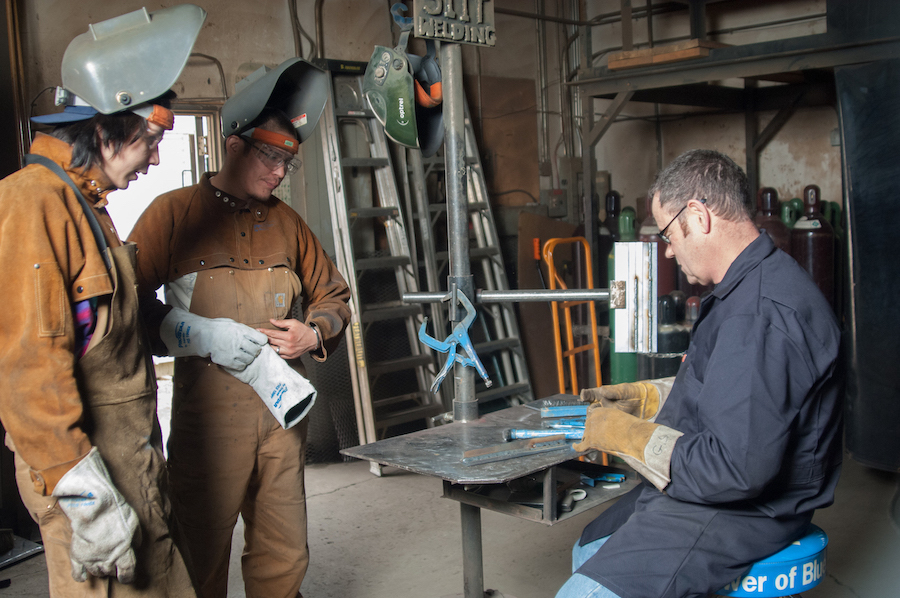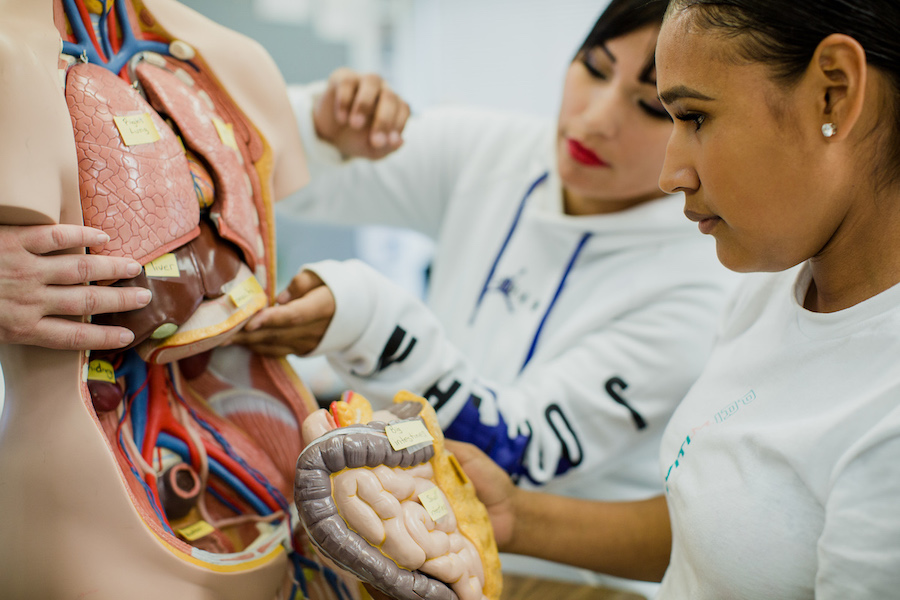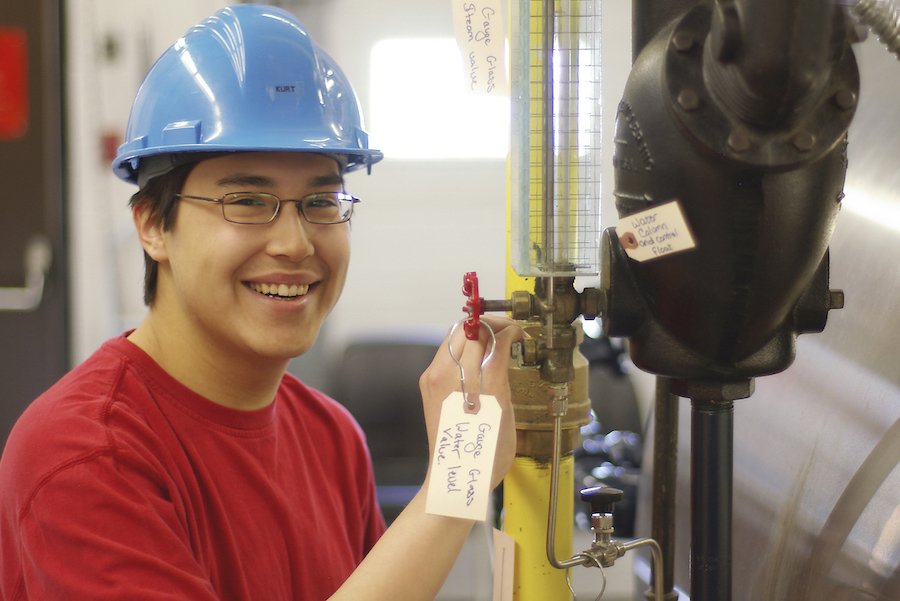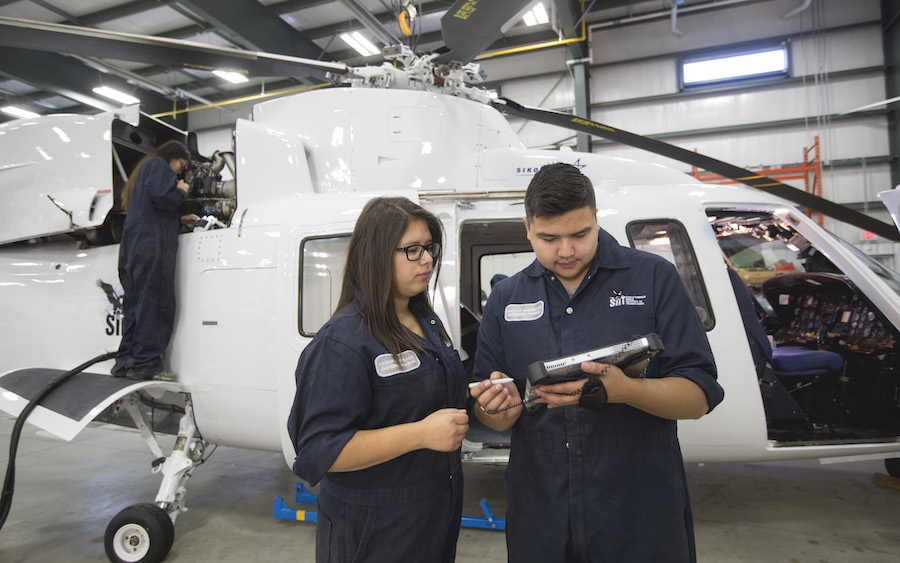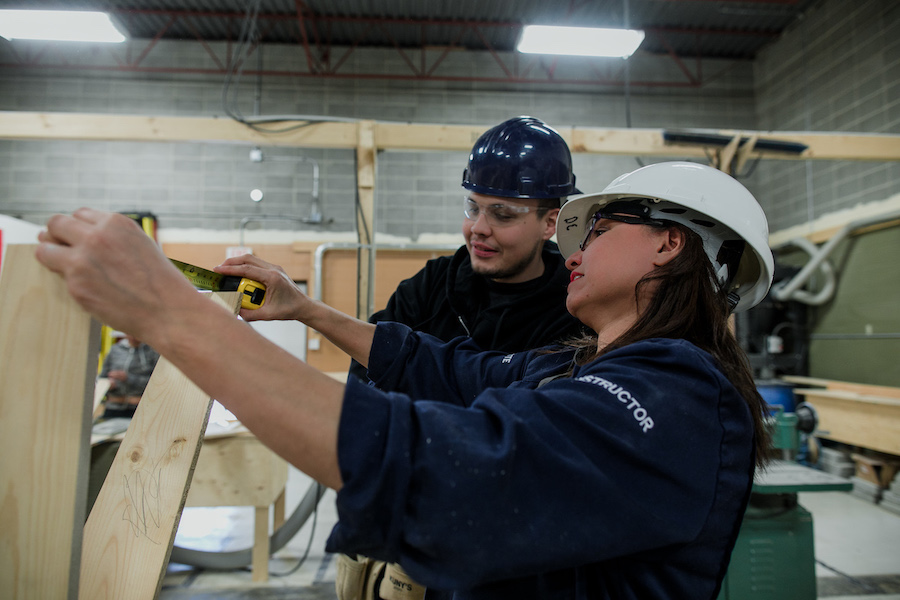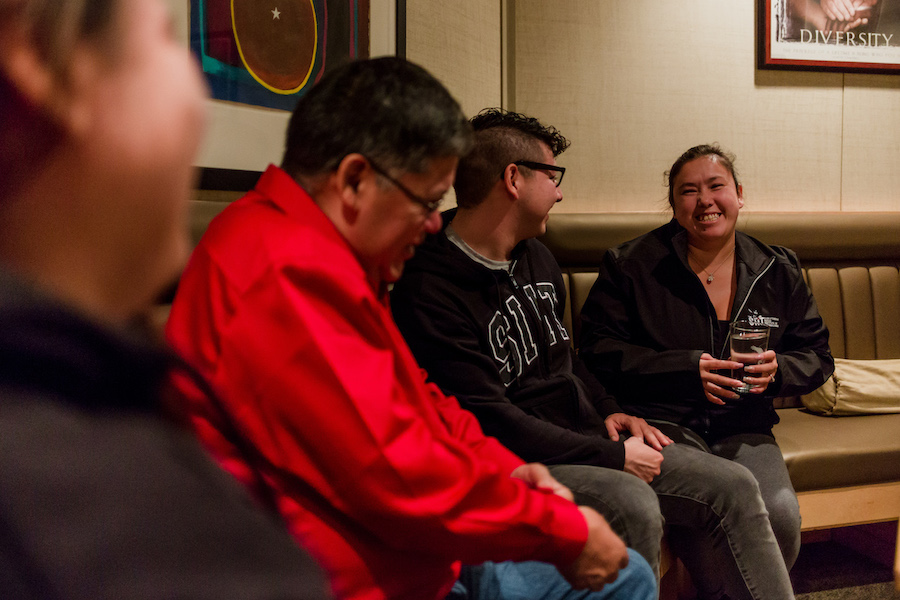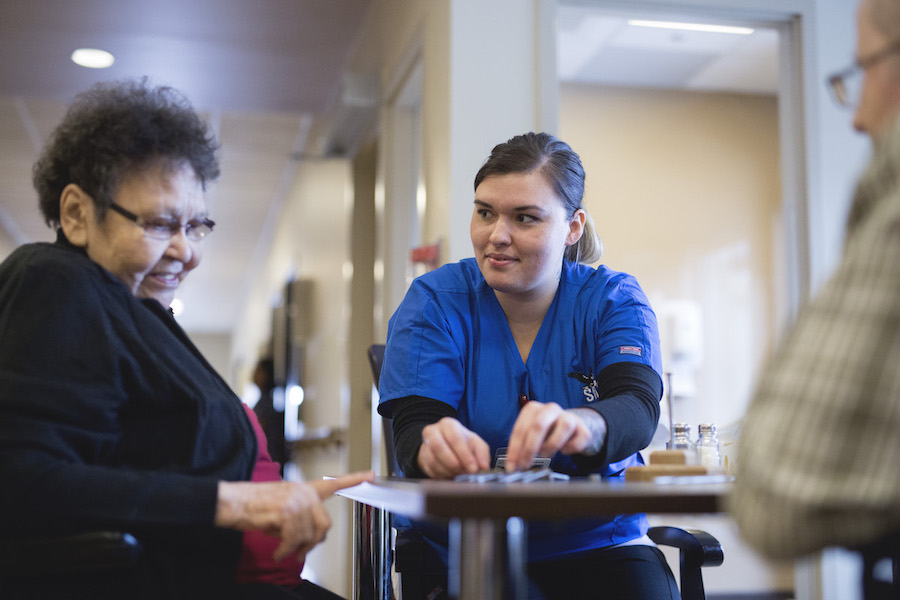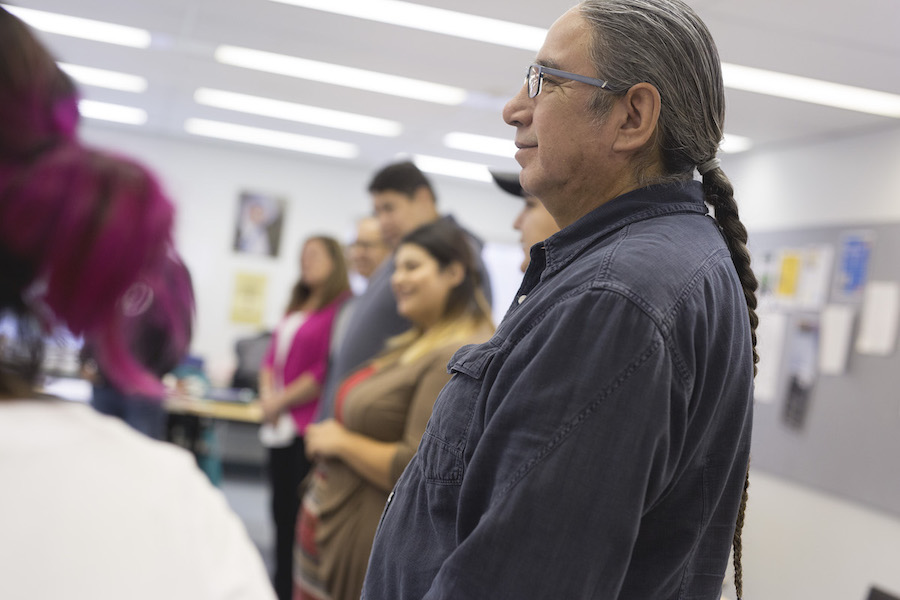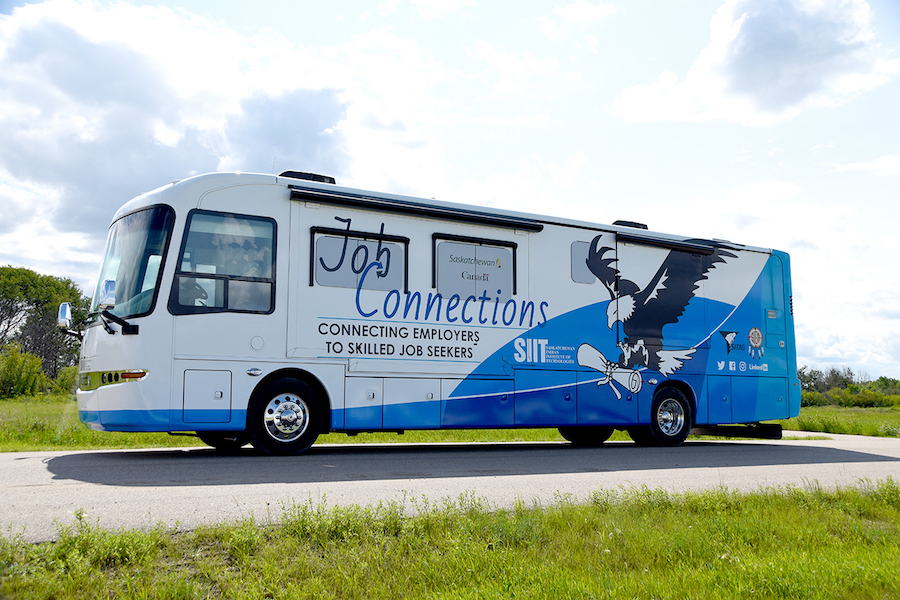Health & Community Studies
Indigenous Practical Nursing
NOC-32101
Program Description
Do you enjoy helping people? Are you interested in nursing? Would you like to provide culturally responsive care? SIIT’s unique Indigenous Practical Nursing Program might be the first step in a rewarding career journey!
The Indigenous Practical Nursing (IPN) program is a full time two year diploma program. It will prepare you to become a culturally responsive and professional care provider- with an understanding of western and Indigenous approaches to health and wellness. Classroom, technologically enhanced lab, and practicum activities will help you to develop the skills needed to make a positive difference in the health and well-being of both Indigenous and non-Indigenous populations. This program is delivered at SIIT’s Saskatoon Campus location.
Upon successful completion of SIIT’s Indigenous Practical Nursing diploma program and the Canadian Practical Nurse Registration Exam (CPNRE), graduates will be eligible for licensure with the College of Licensed Practical Nurses of Saskatchewan (CLPNS). As a Licensed Practical Nurse (NOC 32101), the IPN graduate will provide care to individuals, families and communities at multiple life stages and in a variety of practice settings. Most employers require criminal record and vulnerable sector checks.
Admission Requirements
Academic Requirements
- Regular Grade 12/ Adult 12
- Minimum overall average of 60% in the following 5 classes:
- ELA A 30
- ELA B 30
- One Of:
- Foundations of Mathematics 30
- Pre-Calculus 30
- Calculus 30
- One Of:
- Biology 30
- Chemistry 30
- Physics 30
- One Of:
- Social Studies 30: Canadian Studies
- Native Studies 30: Canadian Studies
Non-Academic Requirements
- Immunization records
- Criminal Record Check
- Vulnerable Sector Check
- Class 5 Drivers License
- Applicants should be physically and personally suited to perform required duties.
Acceptance Policy
Strong preference is given to applicants who are Status First Nations, but SIIT programs are open to anyone.
English Language Benchmark
SIIT is not currently legislated to accept International Students. You must be a Canadian/ Permanent Resident to apply.
To be admitted into this program you must be able to understand and communicate in English (Canadian Language Benchmark Assessment of seven – CLB7).
Fall 2025 - Indigenous Practical Nursing - Year 1 - Saskatoon
Program Length: 10 Months
Start Date: 08/19/2025
Division: Health and Community Studies
Campus: Saskatoon
Location: Saskatoon - Indigenous Practical Nursing - Year 1
Apply Now
Please ensure to review the admission requirements before submitting an application. For more information on the Indigenous Practical Nursing program, please contact SIIT Admissions at (306) 477-9325 or by email at advisor@siit.ca.
Courses
Year 1 | Semester 1 (19 Weeks)
| Code | Course Title |
|---|---|
| IPNRS 105 | Industry Required Safety |
| IPNMM 100 | Medication Math 1 |
| IPNFN 110 | Foundations of Licensed Practical Nursing |
| IPNSS 111 | Indigenous Perspectives for Academic and Personal Success |
| IPNPH 112 | Pharmacology 1 |
| IPNAP 113 | Anatomy and Physiology 1 |
| IPNNC 114 | Nursing Communications 1 |
| IPNCH 117 | Health Challenges Gerontological Nursing |
| IPNPP 118 | Health Assessment Professional Practice 1 |
Year 1 | Semester 2 (21 Weeks)
| Code | Course Title |
|---|---|
| IPNPR 119 | Industry Practicum 1 |
| IPNMM 101 | Medication Math 2 |
| IPNPH 122 | Pharmacology 2 |
| IPNAP 123 | Anatomy and Physiology 2 |
| IPNNC 124 | Nursing Communications 2 |
| IPNMH 125 | Mental Health and Addictions |
| IPNCH 127 | Health Challenges Medical Nursing |
| IPNPP 128 | Health Assessment Professional Practice 2 |
| IPNPR 129 | Practicum 2 |
Tuition and Fees
Year One
| Tuition | Textbooks | Compulsory Fees* |
Total* | |
|---|---|---|---|---|
| $9,080.00 | $2,386.00 | $3,087.00 | $14,553.00 | |
| Please note: All tuition and fees are subject to change. *Compulsory fees may include: student fees, field trip and/or practicum fees, laboratory fees, apprenticeship fees, PPE & other equipment, exam fees, online fees, consumables, safety and first aid training, and tools. *Total amount does not include the required UPass Transit Bus Pass for Saskatoon & Regina students. |
||||
Additional Fees: U-Pass for Saskatoon and Regina Transit Bus Passes
| U-PASS | |
|---|---|
|
$286.00 per year - Saskatoon $246.00 per year - Regina |
The U-Pass is a City Transit bus pass for students that allow you to save on transportation costs. The U-Pass fee is provided at a reduced cost compared to a standard monthly City Transit pass and is mandatory for most SIIT students in Saskatoon and Regina. You may use the U-Pass as many times as you would like during the academic term. Students who meet certain requirements can opt-out of the U-Pass. Please contact the Admissions department for more information. |
| Please note: U-Pass fees are subject to change. | |
Funding
Depending on your status, different forms of financial assistance are available to you. Please click here to explore options for funding. If you require assistance finding funding, please contact supportservices@siit.ca.
What to Expect
Day to Day
Delivery Method
- Time in the classroom- along with extensive lab work- will provide the opportunity for learners to demonstrate skills in a practical setting.
- Students will have the opportunity to complete four practicums (one in each semester) and clinical experience. You must provide a current criminal record and vulnerable sector check and have up to date immunization records to participate.
- 5-10 hours per week of independent and group learning (homework learning).
- Clinical experience is also included.
- Additional Safety and Wellness Training is provided (see below).
Work Integrated Learning
Students in the Indigenous Practical Nursing Program have the opportunity to complete several practicums and clinical experience.
Clinical Practicums
Instructor supervised clinical practice courses Practicum I (Continuing Care), practicum II (Acute Care, Medicine), practicum III (Acute Care – Surgery) and practicum IV (Pediatrics/Labor & Delivery) will be held in long term care facilities and hospitals in Saskatoon and surrounding areas. Students are required to travel to various locations in order to complete their clinical practice experiences. Access to a vehicle may be required as some clinical placements in year 2 may be located outside of Saskatoon campus.
Note- In order to participate in clinical practicums, with Saskatchewan Health Authority, students must:
- Be physically and personally suited to perform required duties.
- Complete or update the following certifications as per Saskatchewan Health Authority Clinical Placement Safety Requirements, prior to entering practicum I:
- Immunization records
- PART
- WHMIS for healthcare providers (online)
- FIT testing
- TLR
- CPR BLS with AED and Intermediate First Aid
For applicants who have the required certifications, a copy of valid certification(s) must be submitted within the first 2 weeks of the program for review by the program coordinator.
For applicants who do not have the required certifications, these will be offered during the first semester. Failure to successfully complete the certificate training will result in mandatory withdraw from the program. Note: Certification dates are preset and will not be re-booked for students who are absent.
Attendance Policy
Regular attendance is essential for academic success. Each program has specific attendance requirements that must be adhered to in order to graduate.
If you have been approved for funding, you must maintain the attendance required by your sponsoring agency to remain eligible to receive payment.
Graduation Requirements and Credential
You must maintain a GPA of 60% average and successfully pass all clinical placements to graduate. Graduates will receive an Indigenous Practical Nursing Diploma and an SIIT Transcript.
Additional Licensing Required for Employment
Some required safety certificates are completed during the course, including:
- PART
- WHMIS for healthcare providers
- FIT testing
- TLR
- CPR BLS with AED and Intermediate First Aid
Following successful completion of the diploma program, graduates must obtain licensure with the College of Licensed Practical Nurses of Saskatchewan (CLPNS) in order to practice. Graduates must first pass the Canadian Practical Nurse Registration Examination (CPNRE) and apply for licensure with CLPNS.
*Please be advised that some employment opportunities may require additional training and/or certification. In some cases, an appropriate class of driver’s license may be required.
Career Path
Career Opportunities & Salaries
Successful graduates who have also completed and passed the Canadian Practical Nurse Registration Exam (CPNRE), and have been licensed with the College of Licensed Practical Nurses of Saskatchewan (CLPNS) can expect to find employment with competitive wages and/or salaries in a variety of health care environments as Licensed Practical Nurses (NOC-32101).
Licensed practical nurses provide nursing care usually under the direction of medical practitioners, registered nurses or other health team members. Licensed practical nurses are employed in hospitals, nursing homes, extended care facilities, rehabilitation centres, doctors’ offices, clinics, companies, private homes and community health centres.
In Saskatchewan, Licensed Practical Nurses are in high demand. The average annual salary for LPN’s is $77,700. (https://www.saskatchewan.ca/business/hire-train-and-manage-employees/labour-market-information)
For assistance finding employment, please contact your local SIIT JobConnections location.
Additional Post-Secondary Opportunities & Credit Transfer
To explore further education at SIIT, click here. You can also explore diploma or degree options at other colleges or universities.
If you have a specific program or career path in mind, it is a good idea to check the prerequisites required. Our Academic Advisors can help you plan for further education.
Saskatchewan Indian Institute of Technologies
Head Office
Suite 100-103A Packham Avenue
Asimakaniseekan Askiy Reserve
Saskatoon, SK S7N 4K4
306-244-4444


